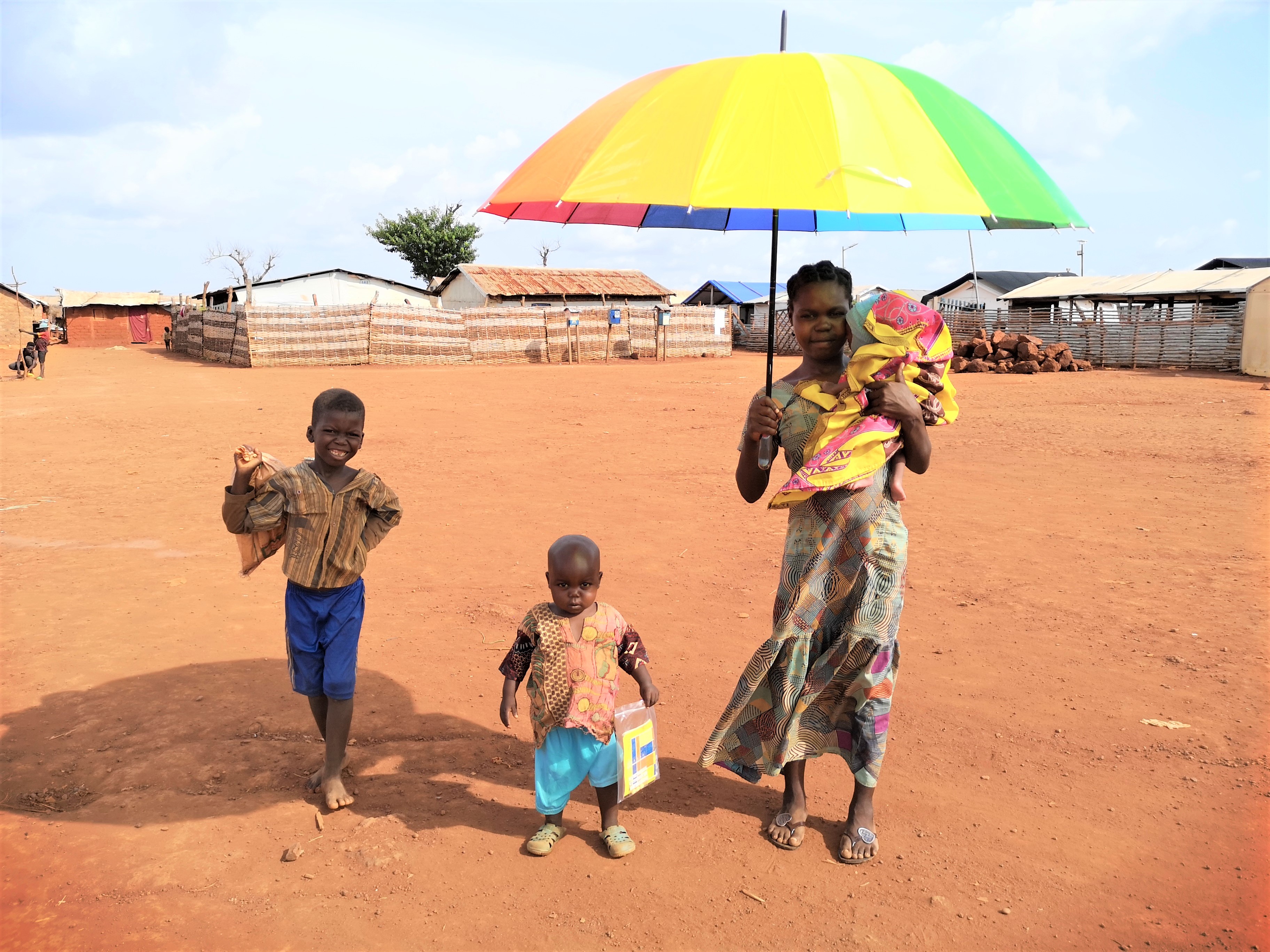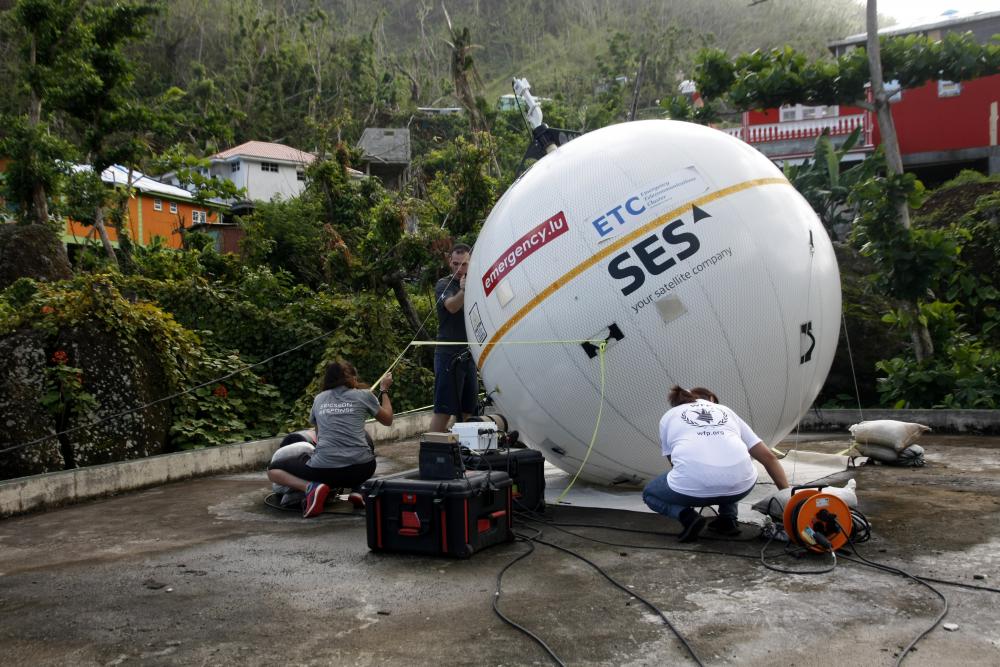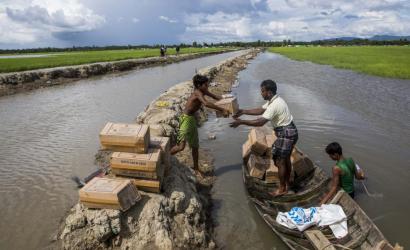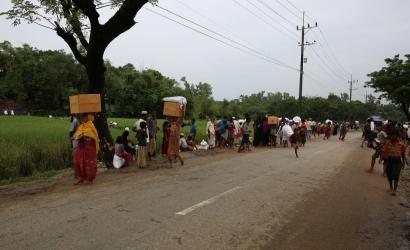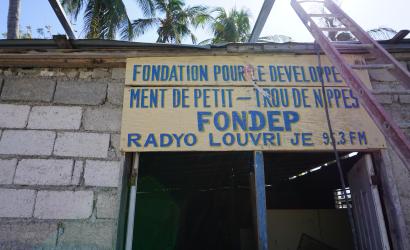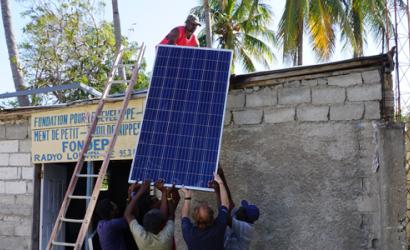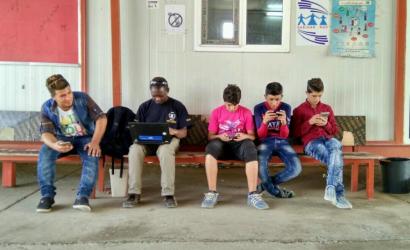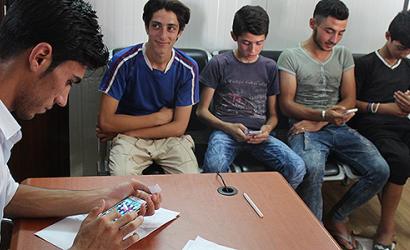Humanitarian response is more effective if communities have the information and communications capacity they need to make informed decisions.
To respond, to recover, to redevelop – in humanitarian operations the ability to communicate is vital for all those involved, including the affected communities themselves.
Understanding this, ETC2025 Strategy expands the cluster's vision, scope and approach to also include services for communities, ensuring no one is left behind.
Communications Essential After Disaster
The woman fleeing war in Syria needs Wi-Fi and phone chargers to determine safe routes. The father in remote Nepal needs radio messages to stay safe during extreme weather. The family displaced by conflict in South Sudan needs to make satellite calls to find their lost members. Communities need to contact responders to provide feedback and tell them what assistance they actually need. People need access to communications technology to receive Digital Aid.
When communities don’t have access to information, or the means to communicate in times of crisis, they can’t make informed decisions, isolating them from vital assistance and sometimes putting them in danger. This CDAC Network video explains some of the challenges.
ETC Services for Communities
As an authoritative voice on ICT in emergencies, the ETC plays a vital role in ensuring that technology projects for communities are responsible, address identified gaps, not duplicated, and well-communicated. The ETC supports services for communities by:
Advocating for Communication as Aid and the role of technology in survival, response and recovery after crises. E.g.
- Working with mobile network operators to advocate for, and highlight good practice in, humanitarian connectivity charter commitments
- Working with governments and the private sector to improve community access to functional ICT infrastructure and services in times of disaster
- Working with major donors and humanitarian decision-makers to highlight, where appropriate, the need for funding for ICT interventions that benefit communities in disasters
Expanding its service catalogue and leveraging its networks to ensure disaster affected people have the ability to communicate. E.g.
- Providing services directly to disaster affected communities including charging solutions for mobile devices, Wi-Fi access, ICT technology for voice calls (satellite).
Contributing to the improved coordination and restoration of technological solutions in the field, facilitating provision of Digital Aid. E.g.
- Supporting humanitarians with projects that help communities to communicate or access important humanitarian information such as technology and connectivity for call centres or hotlines, humanitarian broadcasters, one/two-way communication systems (e.g. SMS, voice, net-based).
For more information, read: What If There Is an Emergency Tomorrow?
Appropriate Solutions to Community Needs
Through its member and partnership network, the ETC ensures provision of information and communications technology solutions to enable communities to communicate in emergencies. ETC Services to Communities supports:
Efficient humanitarian response through access to Digital Aid
As the world becomes more and more digital, so too does humanitarian assistance. Digital Aid refers to assistance which is distributed digitally rather than physically, e.g. e-Vouchers instead of food supplies and mobile money transfers instead of cash.
Communications as Aid
People affected by disaster need communications to contact their loved ones, search for a safe route or provide the humanitarian community with feedback about what assistance they actually need. Communications is provided as aid alongside food, water and shelter. With communications the most vulnerable groups can be reached, from internally displaced persons, refugees, migrants and the stateless, to women and girls, older persons and people with disabilities.
Recovery and redevelopment after disaster
In emergencies, national infrastructure used to communicate with the public is often disrupted. Broadcasters can’t disseminate information, which could include critical humanitarian information; feedback sent via mobile phones might not be representative of vulnerable communities who can’t access mobile networks; hotlines cannot be set up fast enough because of technology or regulation constraints. Through partnership with government, telecommunications regulatory authorities, telecommunications operators and other stakeholders, services to communities supports restoration of networks fostering community recovering and redevelopment.
Communications with Communities (CwC)
CwC initiatives ensure disaster affected people have access to information and opportunities for ongoing dialogue between themselves, as well as with the entire response community, enabling them to make informed decisions about their own lives. This ability to communicate empowers local communities, providing them with the tools to influence the aid they receive.
Accountable humanitarian action through Community Engagement
As a component of organisations’ efforts to enhance Accountability to Affected People (AAP), Community Engagement emphasises two-way communication for discussing, protecting, empowering and positively influencing communities. Community Engagement includes collating and sharing essential information, radio broadcasts in local languages, as well as tracking and correcting rumours.
Realizing a Vision to Save Lives
Realization of the ETC vision requires the involvement of an expanded and more connected network, from leading edge IT companies and local telecommunications providers, to humanitarians, government and the affected communities. There are many ways to get involved, including:
- ETC Services for Communities working group
- ETC projects in high-risk countries
- Mapping and deploying technology for Services for Communities
- Advocacy on ICT needs for Services for Communities.
For more information on becoming involved in ETC Services for Communities activities, contact: Global.ETC@wfp.org
